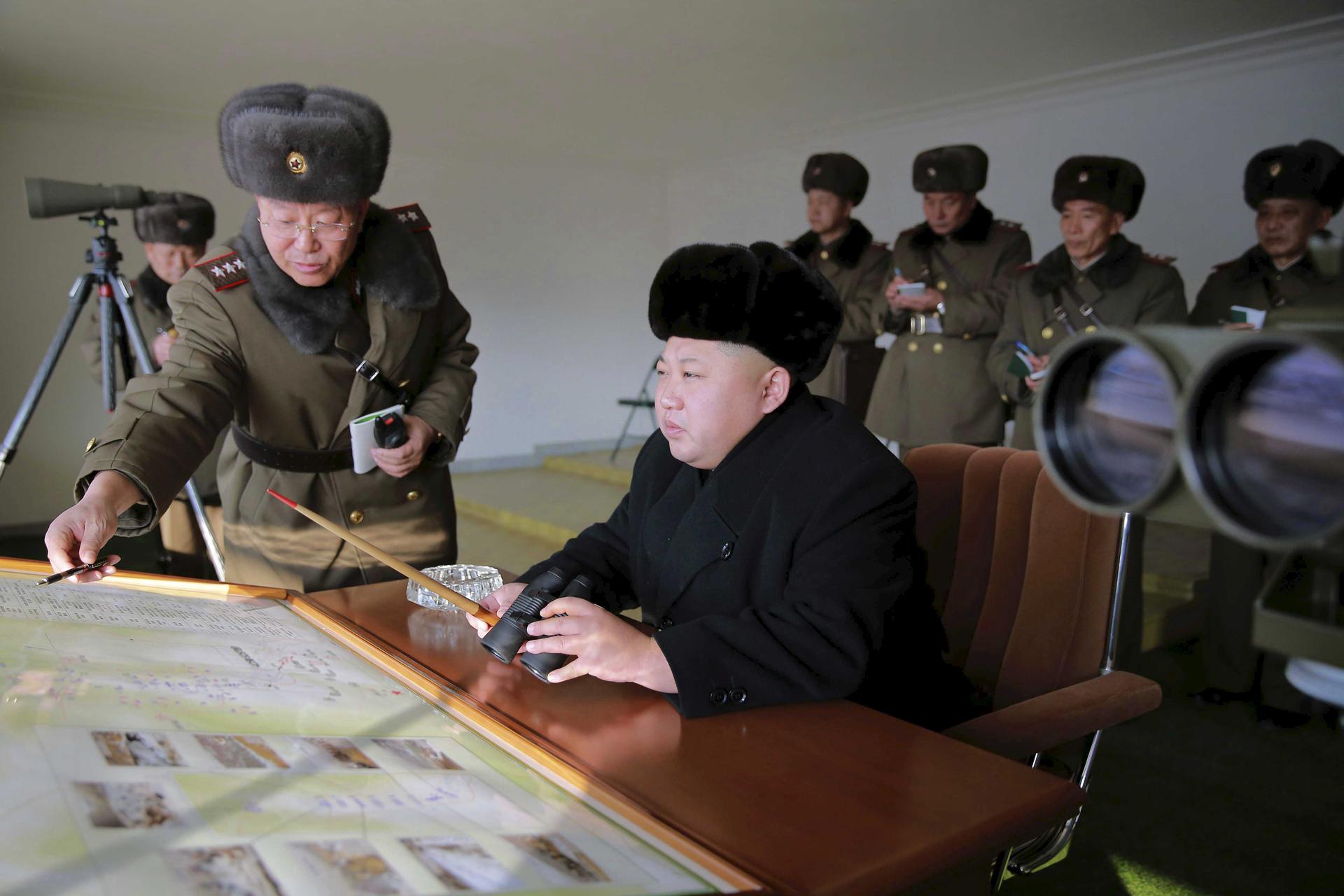North Korea says it has successfully tested a hydrogen bomb
North Korean leader Kim Jong Un watches maneuvers between Korean People'sAarmy units at undisclosed location in this undated photo released by North Korea's Korean Central News Agency (KCNA) in Pyongyang December 24, 2015.
Editor's note: This is Chatter, our morning rundown of what you need and want to know around the world. Fortunately for us all, you can have Chatter emailed to you every day. Just sign up here!
NEED TO KNOW:
It seems like only yesterday that North Korea was warning it could drop a nuclear bomb on the United States "at any time." Now, the hermit kingdom is claiming that nuclear bomb could be a big one. A really big one.
North Korea says it successfully detonated a hydrogen bomb on Wednesday, according to the country's state news agency KCNA. It would be the fourth nuclear bomb test in North Korean history, and yet another reminder that while the world panics about Iran getting a nuclear weapon, North Korea is already a nuclear state.
“[North Korea] has confidently risen to the ranks of nuclear powers with hydrogen bombs by perfectly succeeding in the historic test of a hydrogen bomb,” an anchor for Korean Central Television said, according to Bloomberg.
Of course, North Korea likes to talk big. As is the case with most of its blustery claims: It's a huge deal, if it's true.
Experts are skeptical that the weapon used Wednesday was actually a hydrogen bomb, which would be several times more powerful than the plutonium-based bombs North Korea has tested in the past. The United States Geological Survey registered a 5.1 magnitude seismic event in the region where the test took place. That's not much larger than the 4.9 tremor set off by North Korea's last nuclear test in February 2013.
H-bomb or no, the world is taking the provocation seriously. China joined the US, Britain, France, Japan, NATO and others in condemning the test. And the United Nations Security Council will hold an emergency meeting to decide what actions, if any, should be taken in response.
WANT TO KNOW:
Southeast Asia has become a global hotspot for wildlife poaching. But endangered animals just got some powerful new friends: Muslim clerics.
Clerics in Malaysia’s northeastern state of Terengganu recently joined Indonesia in issuing a fatwa (a religious edict) against illegal hunting. When the top Islamic clerical body in Indonesia — home to the world’s biggest Muslim population— issued a fatwa in 2014, it was hailed by many conservationists as the first of its kind.
“Animals have a right to live and we humans should protect them and ensure that they flourish,” Asrorun Niam Sholeh, a secretary at the Indonesian Ulema Council overseeing matters related to fatwas, told GlobalPost correspondent Beh Lih Yi. “As Muslims, we have a duty to maintain the ecological balance.”
Both countries already have laws against trafficking in protected species. In Indonesia, it can earn you a maximum of five years in jail and a 100 million rupiah ($7,176) fine. In Malaysia, illegal hunting can be punished with a fine of up to 50,000 ringgit ($11,510), two years’ imprisonment, or both.
Enforcement of those bans has been uneven, however. And while conservationists have praised the fatwas, some have also argued that strengthening and enforcing current laws would do more to protect animals at risk.
Maybe those laws will have some more teeth now that poaching isn’t just illegal — it’s a sin.
STRANGE BUT TRUE:
Hong Kong’s publishers keep disappearing. It’s a mystery in which the stakes for the quasi-independent Chinese territory couldn’t be much higher.
In recent months, five people connected to a single publishing house — known for detailing misdeeds of Chinese Communist Party officials — have vanished. The latest to disappear is 65-year-old Lee Bo, whose worst transgression against the Party, it seems, was preparing the release of a book on the alleged secret love life of China’s President Xi Jinping.
One thing makes Bo’s case special: He disappeared Dec. 30 while on Hong Kong soil, and, according to his wife, was seized by Chinese operatives.
If true, it would be a serious breach of Hong Kong’s autonomy: a major departure from the “one country, two systems” laws that offer limited independence to Hong Kong, bar Chinese police from making arrests there, and give residents the right — until now, perhaps? — to criticize the Chinese Communist Party without being snatched off the street.
“In the past, we were safe because we lived in Hong Kong instead of mainland China,” says Agnes Chow, a student activist who helped lead Hong Kong’s “umbrella revolution,” in a video posted online shortly after Lee vanished.
“However, the circumstances have changed with this abduction … we feel that Hong Kong is not Hong Kong anymore. I’m also afraid for my personal safety after this incident happened. I still believe we should continuously fight for freedom from fear.”
For now, the whereabouts of the five missing publishers are unknown.
We want to hear your feedback so we can keep improving our website, theworld.org. Please fill out this quick survey and let us know your thoughts (your answers will be anonymous). Thanks for your time!
